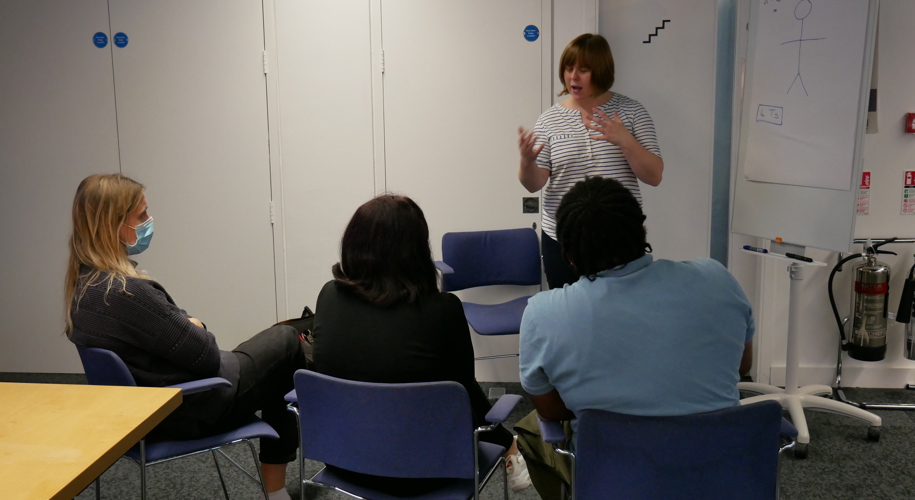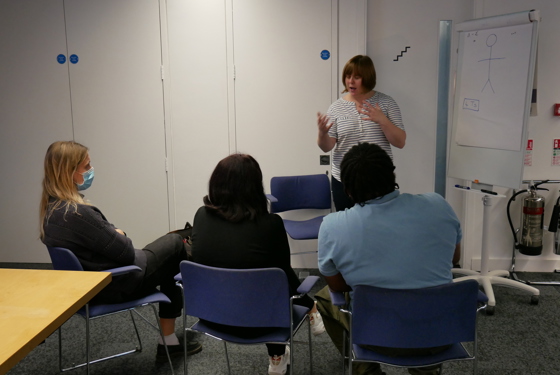How workplace-based assessments (WPBAs) are used in the specialty training programme in obstetrics and gynaecology (O&G).
Please note: As of 1 August 2014, the way WPBAs are delivered has changed. The College has produced a free RCOG eLearning module to explain the rationale, details and implications of the changes.
- What are workplace-based assessments?
- The different types of WPBA you’ll need to complete
- The number of WPBAs you’ll need to complete
- Organising the assessments
- WPBA forms
What are workplace-based assessments (WPBAs)?
Workplace-based assessments (WPBAs) are used to evaluate your progression through the specialty training programme. The assessments aim to link teaching, learning and assessment in a structured way.
WPBAs aren’t necessarily used to demonstrate that you’re completely competent in a procedure, but rather to identify strengths and weaknesses. This helps your Educational Supervisor give you the necessary support. To gain an accurate picture of your abilities, several WPBAs will be evaluated together at your routine appraisals.
You should take assessments throughout the training year as they’ll provide you with valuable feedback. You should complete all assessment forms via your ePortfolio.
Different types of WPBA
There are three types of WPBA in O&G training:
- OSATS (objective structured assessment of technical skill)
- Mini-CEX (mini clinical evaluation exercise)
- CbD (case-based discussion)
Formative vs summative WPBAs
WPBAs are either:
- Formative (assessments for learning), used to provide feedback
- Summative (assessments of learning), used to allow you to demonstrate competence in a given clinical situation
The O&G training programme includes both formative and summative OSATS. Mini-CEX and CbDs are formative only.
Number of WPBAs
The training matrix of educational progression details the minimum number of assessments you’ll need to complete (for observation, under supervision and independently) each year. This is the minimum number thought necessary to confer competence.
However, each trainee will develop at a different rate, and some trainees will need to carry out more supervised procedures than others before their trainer is satisfied that competence has been achieved and the trainee can practise independently.
You should discuss with your Educational Supervisor how many of each type of assessment you need to complete, based on your progress.
Organising the assessments
As the trainee, you’re responsible for organising your WPBAs. Discuss with your Educational Supervisor the areas that require assessment at different stages; this will depend on the unit in which you’re working.
Plan ahead so you’re not completing all of the necessary assessments in the lead-up to your appraisal or ARCP. If you’re struggling to have assessments completed in your unit, speak to your Educational Supervisor as soon as possible. Don’t wait for your appraisal or ARCP to explain the difficulties you’re having.
WPBA forms
Remember that you need to complete all WPBA forms via your ePortfolio.
Formative assessment forms
Summative assessment forms
Non-Technical Skills for Surgeons (NOTSS)
Non-Technical Skills for Surgeons (NOTSS) is a tool allowing trainers to give feedback to colleagues and trainees based on structured observations of non-technical aspects of performance.
What are non-technical skills?
Non-technical skills are the cognitive and interpersonal skills that complement practical and technical competences, such as decision making, leadership and team working. In surgical specialties, these behavioural or non-technical aspects of performance (e.g. communication failures) are often the underlying causes of adverse events, rather than a lack of technical expertise. Traditionally, these aspects of performances have been largely developed informally rather than explicitly addressed in training.
What is NOTSS?
The NOTSS system provides a framework and common terminology for rating and giving feedback ton non-technical skills. Used in conjunction with medical knowledge and clinical skills, NOTSS is a tool to observe and rate behaviour in theatre in a structured manner. This enables clear and transparent assessment of training needs.
NOTSS describes the main observable non-technical skills associated with good surgical practice, under the following headings:
- Situation awareness
- Decision making
- Communication and teamwork
- Leadership
The RCOG has adapted the NOTSS system for use on the labour ward and in the gynaecological operating room. We have removed the rating system to focus on providing constructive and timely feedback. The system includes only those behaviours that are directly observable or that can be inferred through communication. NOTSS covers a wide range of non-technical skills in as few categories as possible.


